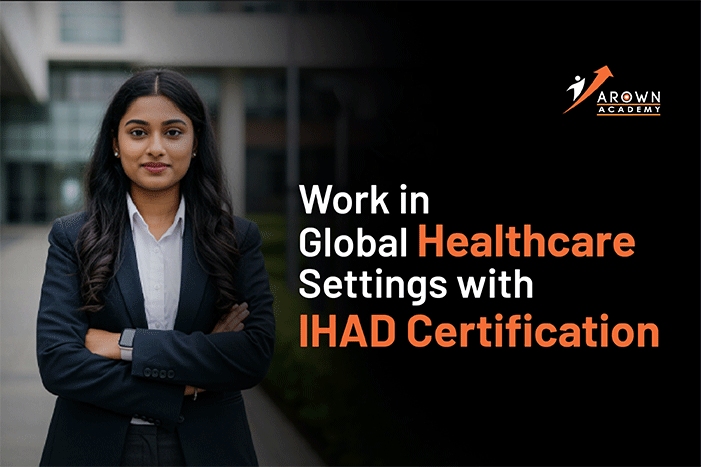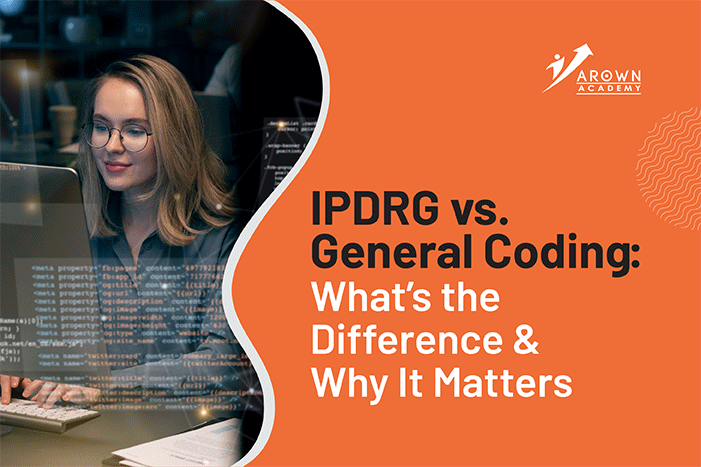IPDRG coding and general (outpatient) coding are likely familiar to you if you're considering a career in medical coding. What distinguishes them from one another, though? Which is best for your professional objectives?
You will discover in this blog:
-
General medical coding: What is it?
-
IPDRG coding: What is it?
-
Key distinctions between IPDRG and general coding
-
The reasons behind the rise in popularity of IPDRG coding
-
Which one to pick for greater pay and career advancement
To help you make an informed and easy career decision, let's decipher these coding specialisations.
General Medical Coding: What Is It?
Converting doctor visits, consultations, minor surgeries, and outpatient treatments into standard codes for billing and insurance claims is known as general or outpatient medical coding.
✔️ Instances of general coding in action:
-
Clinics for doctors
-
Hospital OP departments
-
Diagnostic laboratories
-
Procedures for nursery
-
Accreditation: The most widely used certification for general coding is CPC (Certified Professional Coder).
IPDRG Coding: What is it?
Inpatient Prospective Diagnosis Related Group coding is known as IPDRG. When a patient is admitted to the hospital for a minimum of one night, it is utilised.
✔️ Some instances of IPDRG coding in action:
-
Hospital stays for major surgeries
-
Admissions to critical care
-
Hospitalisations for long-term treatment
-
Advanced instruction in ICD-10-CM and PCS codes, DRG grouping, and inpatient billing protocols is necessary for certification.
Important Differences Between IPDRG and General Coding
|
Feature |
General Coding |
IPDRG Coding |
|---|---|---|
|
Patient type |
Outpatients (no admission) |
Inpatients (hospital stay) |
|
Complexity |
Moderate |
High (detailed codes & DRG grouping) |
|
Certification needed |
CPC |
CPC + IPDRG |
|
Salary range |
Good |
20-30% higher than general coding |
|
Career growth |
Steady |
Fast-tracked with global opportunities |
Why is IPDRG Coding Becoming More and More Popular?
IPDRG coders are in high demand as healthcare systems move towards DRG-based billing, particularly in the US, UAE, Germany, and Australia.
This is because:
-
Hospitals require specialised coders for inpatient billing compliance
-
Accurate DRG coding ensures correct reimbursement
-
It is essential for hospital revenue management
Which Is Better for Your Career Development?To develop solid foundations in medical coding, begin with general coding (CPC certification) if you're new to the field.
IPDRG specialisation is the best course of action for CPC-certified programmers seeking senior roles, higher pay, and employment opportunities abroad.





